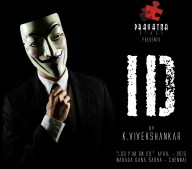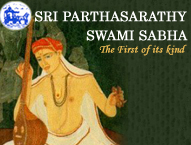Cho, what’s up?
Published in The Hindu on June 02, 2004
Cho Ramaswamy launches a retropective of his plays and is surprised to find that they are more relevant today. GOWRI RAMNARAYAN talks to Tamil theatre’s irrepressible Thuglak
ASK THE veteran of Tamil theatre if he has ever thought of trying out more contemporary techniques in sets, costume, lighting, acting and dialogue delivery and he will flash back, “Dialogue is our forte. It must reach the audience. Even if it is antiquated, I’d like to retain it. I’ve never thought of ways to ruin success.” And success is what the lawyer, satirist, actor, playwright, journalist and political analyst Cho Ramaswamy has achieved in Tamil Nadu, and among Tamils everywhere.
As Narada Gana Sabha hosts a mid-year retrospective of his plays, Cho finds a younger generation of theatre goers excited by what he wrote years ago. “They laugh or applaud at just those moments that audiences in the past did.” Many find the socio-political satire more relevant now than when the plays were written. For the Viveka Arts amateur theatre company to which he belongs, founded by brother Rajagopal (Ambi), this is a matter for jubilation in its golden jubilee year. Except for a break in the 1990s, they have been regular performers.
The author of 23 plays remembers that he knew nothing about drama until he saw a YGP production. The next day he rehashed an old story for Viveka Arts, graduating from farce to full length plays. “No idealistic goals, don’t think drama is a form of entertainment.” Cho’s acting career began with Devan’s “Kalyani” and Koothabiran’s “Thenmozhiyal,” continued with key roles in his own plays, and a long innings as comedian in Tamil cinema.
“What I did on the screen was very different from what I did on stage. I have written many serious plays, and only five or six political satires, but they became so famous that I got labelled as a satirist.”
The fledgling Viveka Arts had to compete with doyens such as the TKS brothers, S. V. Sahasranamam, R. S. Manohar, K. Balachander and Major Sunderarajan. “We got their approval right away,” Cho recalls. The troupe never had to weather failure, but their riotous rehearsals and tours strengthened bonds. “I think Pattu (YGP troupe) inspired me to write comedy.”
There was a price to pay for puncturing political shams. Bans, censorship hassles and show disruptions. “We enjoyed it all,” smiles Cho. “It gave us a lot of publicity. More people came out of curiosity.”
Friend and foe agreed that Cho created a new kind of theatre with side-splitting wisecracks. “There was no need for in-depth research, anyone with a superficial grasp of politics could have written my plays,” he says. Many, however, see Cho’s long-term friendship with top political leaders in Tamil Nadu — none of whom he has spared — as a crucial factor in his success. Cho has been sassy, impudent, irreverent and fearless in making fun of everyone, including himself. Is he tired of this compulsive audacity? “I never seek confrontation, but if it comes I won’t shy away from it.”
Cho’s journal amplifies his voice almost exclusively. At Thuglak’s annual live interactive sessions, readers get a chance to question and criticise. “My respect for democracy stops with letting them have their say. The decisions are mine.”
The man who talks too much becomes somewhat introspective in his translations of the Mahabharata and the Ramayana. This interest had been sparked way back when he researched for quotations from the Gita for the play “Sambhavami Yuge Yuge.” “I am amazed at the range of thinking reflected in the old texts, especially on human nature.”
Legal training enables Cho to cut to the root of any issue, grasp constitutional issues and state his case clearly. And about theatre? “It helped me overcome stage fright, sharpened my writing skills and gave me friends who are still with me.” Will his plays endure? “Let me compare myself with the best. How many people realised that Kalidasa or Shakespeare wrote classics when they were alive? My last play “Nermai Urangum Neram,” written 23 years ago, or “Mohammad bin Thuglak” (1968), is received now just as it was on day one. That’s enough for me.”
Has half a century of lampooning converted anyone? “No. We are talking to people who are already of the same mind. But to them I give some hope. They must draw courage from the fact that they are not alone.”
* * *
All sound and fury signifying nothing. He is partly responsible for making Tamil theatre into a `talkie’. Cho is the pseudo-conscience of the urban middle class. After watching his play they can continue with their hypocrisies.
Jnani Sankaran
Theatre Director
I have great admiration for my old friend Cho — from overcoming the drawback of a poor voice, to his uncompromising integrity. If you think Cho is saying something silly, think again, you’ll find it has its own significance.
Nagesh
Actor
I found Cho’s plays loud and naïve but a historical necessity. Cho’s Thuglak reached the people like Girish Karnad’s “Tughlaq” could never do, nor my “Aurangzeb” for that matter.
Indira Parthasarathy
Writer
I was thrilled to be asked to act in a Cho play while still at school. Cho would counter your serious questions with jocular retorts. But you would find a serious answer in the joke. I hero-worshipped him.
Lakshmi
Actor
* * *
Cho fails to understand how much confidence the Dravidian Movement instilled in people like me. He passes off as an objective analyst, but his biased armchair political rhetoric lacks depth. No empathy for those who think differently. Don’t know if you can slot his `plays’ as theatre at all, they are extensions of Tamil cinema
–Arasu, professor (Tamil) Madras University
He introduced political satire into theatre with a touch of class.
–Malan, media personality
Except for “Saathiram Sonnadillai” and “Enge Brahmanan” Cho shows no unease about the caste system.
–Pritham Chakravarthy, actor
I am working to build a theatre with an all-pervasive aesthetics, but that is no reason why I should oppose popular forms. A healthy society must accommodate many trends. Can’t deny Cho’s talent.
–Na. Muthuswami, writer and theatre personality
Cho’s satire lacks introspection. Cho may call his work entertainment but his subjects are not light. Excessive joviality dilutes his satire in running water. No visual dimension or body language either.”
–S. Ramanujam, theatre director
I loved the sparkling satire in “Judgment Reserved” and “Unmaiye Un Vilayenna.”
–Vijay Siva, Carnatic vocalist
A colleague speaks…
 Neelu, a lead actor in Cho’s plays for half a century recounts the good old days…
Neelu, a lead actor in Cho’s plays for half a century recounts the good old days…
When some of us old students of the Vivekananda College formed Viveka Arts 50 years ago, we thought of it as fun and entertainment. We didn’t imagine that we’d bring about a change in Tamil drama culture with our brand of satire. Of course, the real directors of our plays are the politicians. We owe our enduring appeal to them!
You should have seen Cho in those days. During rehearsals he was more explosive than in the dialogue. Censorship problems were a challenge to him, he’d refuse to change a single word. We had a lot of excitement in our shows. Once Congressmen told us that our spoof on the DMK achieved much more in a single show than in all their election meetings. Despite police protection, we never knew when stones and rotten eggs would rain on the stage.
Our group is a close knit joint family. No newcomers, even if it means that college students have to be played by 50 year old `boys’. Initially, we played women too, because we were afraid our families would object to women joining the group. No one has left Viveka, we refuse transfers and promotions in our jobs to be together. Only death could snatch three members away.
















 My Detailed Profile (Download PDF)
My Detailed Profile (Download PDF) 





Your Voice